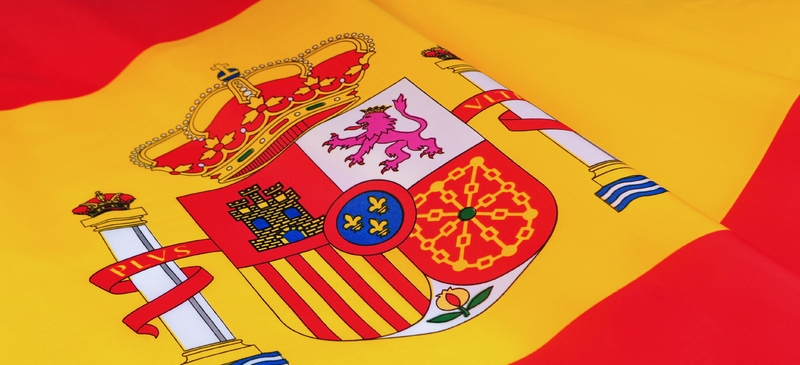
Guest column: Spain's muted EU voice
There are several paradoxes about Spain’s global role. Its business leaders have built up many world-beating companies, but its politicians tend to be parochial. And although Spain is one of the most pro-European Union nations, it wields less influence in the EU than the other large member states.
This was not always the case. From the time it joined the EU in 1986 until the early years of the current decade, Spain was a member state that mattered.
Felipe González, prime minister until 1996, invented the concept of European citizenship, the EU’s cohesion funds and the ‘Barcelona process’ of aid to the Mediterranean region. He managed to forge close relationships with Helmut Kohl and François Mitterrand, who then dominated the EU, while at the same time getting on well with Margaret Thatcher (as well as with Ronald Reagan and George Bush senior).
Mr González’s right-wing successor, José María Aznar, was less committed to European integration. But he was still a figure to be reckoned with, helping to launch the ‘Lisbon agenda’ of economic reform in 2000. He forged strong alliances with Tony Blair, Silvio Berlusconi and George W. Bush, culminating in their joint support for the invasion of Iraq. That war’s unpopularity in Spain helped the left return to power in 2004.
During the five years of José Luis Rodríguez Zapatero’s premiership, Spanish influence in European councils has dwindled. Italy and Poland, as well as some smaller countries such as the Netherlands and Sweden, often have more say in EU policy-making. Nor has Mr Zapatero been particularly visible on global economic or diplomatic questions. He did invent the ‘alliance of civilisations’, designed to build bridges between the Muslim world and the West, and he took part in the recent meetings of the G20 heads of government, though he had little to say. But on many of the key policy issues confronting the EU today – such as Russia, Afghanistan, Pakistan, Iran, financial regulation, eurozone governance and climate change – the Spanish voice is muted.
Spain punches below its weight because of the personality of the prime minister. He seldom travelled before rising to high office and is not competent in any foreign language. He has made no serious effort to build alliances with other leaders or countries. Mr Zapatero’s interests lie at home, where he has undoubtedly been a successful politician.
His foreign policies – particularly those that set Spain against George Bush junior – have been popular at home. But they have contributed to a second reason for Spain’s diminished influence in the EU: on many important issues, Spain is an outlier, at one end of the spectrum of the member states. The most influential ones tend to be those that are at the centre of the debate, at least some of the time.
When Russia behaves aggressively, Spain is inclined to blame the US, and it usually argues against the EU criticising the Russians. When it comes to China, Spain is the least critical of the member states on human rights – Spanish leaders refuse to meet the Dalai Lama – but the most supportive of protectionist measures against Chinese goods.
On Iran, Spain has argued against tougher sanctions, should Obama’s attempt to engage Tehran fail to change its nuclear policy. On the Israel-Palestine conflict, Spain seldom criticises the Palestinians. It takes a softer line on Cuba than most other EU members. In the Balkans, Spain has resisted British, French and German pressure to recognise Kosovo’s independence. On all these issues, Spain has been at odds, not only with most of its EU partners, but also with the US.
In all European countries, domestic politics influences foreign policy, but in Spain the link is particularly strong. Mr Zapatero is generally reluctant to support a foreign policy that would upset his Socialist Workers’ party. This leads to tensions between the party and professional diplomats. The party exercises control of the foreign ministry through politically-appointed state secretaries and ministerial advisers.
Government officials claim Mr Zapatero plans a more assertive role in the EU. They point to Barack Obama shifting US foreign policy “in a Spanish direction” and to Spain’s plans for its tenure of the EU presidency in the first half of 2010. But we should be sceptical about a predicted surge in Spanish influence. For one thing, although US foreign policy has changed, it remains much more critical than Spain of Russia, Iran, Cuba and the Palestinians. For another, the prime minister will remain a domestically-focused politician.
Even the return to power of the Popular party might not make much difference. Mariano Rajoy, the party’s leader, also speaks no foreign languages and is mainly interested in domestic policy. When he and Zapatero debated with each other on television during the election campaign, they spent only 90 seconds on foreign policy.
I hope that I am wrong in predicting that Spain will remain, in EU terms, a small country. The EU needs member states that can think beyond their own immediate interests, and it needs leaders who can think globally. Spain should not sit back and allow Britain, France, Germany and a few others to dominate the EU’s agenda.
